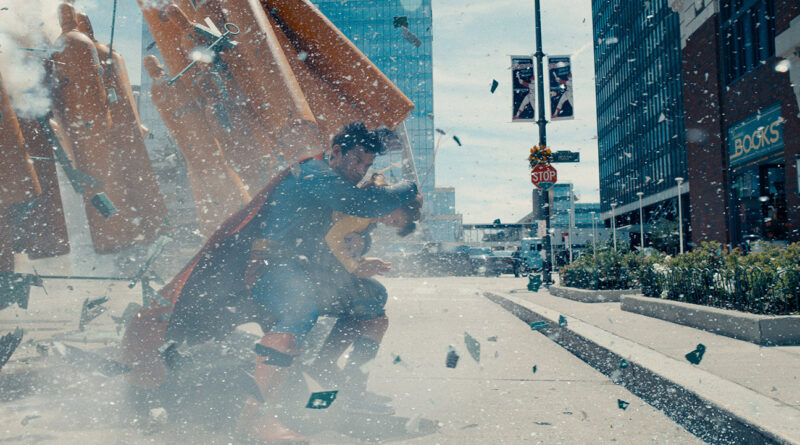Warner Bros. Discovery Beats Lawsuit Over Superman Rights
Warner Bros. Discovery and DC Comics will not have to face a lawsuit over the rights to Superman that looked to block the release of the studio’s tentpole film in several countries ahead of its July release, a court has ruled.
U.S. District Judge Jesse Furman on Thursday dismissed the lawsuit from the estate of Joseph Shuster, the co-creator of Superman, finding that he doesn’t have authority over the case since the copyright infringement claims were brought under the laws of foreign countries.
In a statement, a WBD spokesperson said, “As we have consistently maintained, DC controls all rights to Superman.”
On Friday, the lawsuit was refiled in New York state court.
The sweeping lawsuit from Warren Peary, Shuster’s nephew, claimed infringement of copyright laws in the U.K. Australia, Canada and Ireland, among others, alleging that WBD lost its international rights to Superman years ago but continued to exploit them without permission or compensation. It sought a share of profits from all works attributable to the alleged infringement, including Zack Snyder’s Justice League, Black Adam and Shazam!, in several countries.
In Thursday’s ruling, the court rebuffed arguments from Peary that the lawsuit raises an alleged violation of U.S. law that must be considered to decide the case. His “infringement claims are brought explicitly under the laws of foreign countries, not the laws of the United States,” Furman wrote.
Among the arguments that Peary advanced was that his claims arise under the Berne Convention, an international treaty adopted in 1886 that sets minimum standards for copyright protection. He argued that the court must apply the laws of the countries where his rights to Superman are being infringed upon, including Canada, the U.K., Australia, New Zealand and Ireland. Under U.K. copyright law, for example, copyright assignments are terminated 25 years after the author’s death. By Peary’s thinking, the estate reclaimed the rights to Superman in 2017 since Shuster died in 1992.
The court concluded that the Berne Convention isn’t “self-executing,” meaning that its provisions aren’t automatically enforceable in U.S. courts.
DC’s ownership of Superman dates back to 1938, when writer Jerome Siegel and Shuster, a graphic artist, sold their rights to the character and story for $130. The hero’s first appearance under DC’s banner was in Action Comics No. 1, which detailed his backstory, secret identity as newspaper reporter Clark Kent, and powers of super strength and speed (his first time flying came in 1943 in Action Comics No. 65).
Since then, it’s frequently been the target of litigation, starting in 1947 when the duo sued to invalidate DC’s ownership of the rights to Superman. The case settled, with a $94,000 payout to Shuster and Siegel to resolve the case.
Under U.S. copyright law, Shuster would typically be able to reclaim his domestic rights to Superman under a provision in intellectual property law that allows authors to claw back ownership of their works after a certain period of time. But his sister and brother reached a deal with DC in 1992 that terminated that right in exchange for $25,000 per year. A federal appeals court later upheld that determination.
Also at play was the possibility that Shuster’s sister didn’t have the authority to bind the estate to the deal that purportedly surrendered its rights to terminate DC’s ownership of Superman. The court didn’t decide that issue after finding that it didn’t have authority over the case.
Peary was represented by powerhouse copyright termination lawyer Marc Toberoff, who declined to comment.

